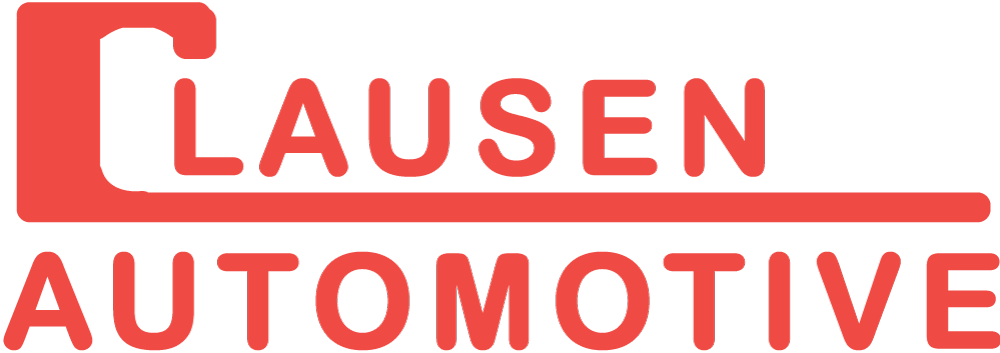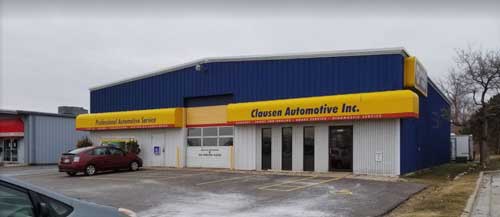Noisy brakes are an embarrassing annoyance at best. At worst, they can signal a serious stopping problem. Noisy brakes can be reflected by a strong pull to the side, and cause poor braking performance. It is important to address brake issues before they become more serious maintenance issues.
If you want to know if it’s just a brake pad that’s causing the noise, or whether it’s a bigger problem, take note of the following suggestions before taking your vehicle in for a brake replacement:
- Squealing can be caused by metal, brake dust or organic debris stuck on the brake pad as it comes in contact with the brake rotor.
- Warped or distorted rotors can cause noise that indicates serious metal-on-metal contact.
- Brakes composed of a harder metallic compound can frequently squeal. As the brake pad material wears down, wear indicators can come in contact with the rotor surface.
Ask your mechanic about performing the following brake service:
1) A complete inspection of each wheel. After raising the vehicle and removing the wheel, they will take a close look at the overall condition of the brake pad, calipers and rotors. The rotors should be smooth and groove-free; if there are excessive grooves and other damage, they should either be turned or replaced.
2) If the brake pad material is down to the wear indicators, the pads should be replaced immediately. This is done by unbolting the caliper from the rotor, popping the old pads out and inserting the new ones into the caliper. A small bead of anti-squeal lubricant should be applied to the back of each new brake pad prior to installation.
3) Noise reduction shims can help reduce or even eliminate brake noise. These shims are installed on the back of the brake pad during replacement. The shims feature rubber padding with a metal backing in between, which helps isolate vibrations that could lead to squealing and other noises.
4) Washing excessive brake dust from the vehicle wheels. This will dampen the pads in the process and help prevent future build-up.
The peace of mind gained by taking your vehicle into your auto service center for a brake repair or brake replacement is well worth the expense incurred.
Squealing brake pads? Contact our ASE Certified Technicians at Clausen Automotive by calling (608) 221-8321 or go on-line at https://www.clausenautomotive.com for more information about a brake replacement. Since 1975, our family-owned automotive repair shop has proudly served vehicle owners in Madison, WI, and surrounding communities.
What's All the Noise About? For peace of mind, take your vehicle to an brake shop for an brake replacement. Call us today!Noisy brakes are an embarrassing annoyance at best. At worst, they can signal a serious stopping problem. Noisy brakes can be reflected by a strong pull to the side, and cause poor braking performance. It is important to address brake issues before they become more serious maintenance issues.
If you want to know if it’s just a brake pad that’s causing the noise, or whether it’s a bigger problem, take note of the following suggestions before taking your vehicle in for a brake replacement:
- Squealing can be caused by metal, brake dust or organic debris stuck on the brake pad as it comes in contact with the brake rotor.
- Warped or distorted rotors can cause noise that indicates serious metal-on-metal contact.
- Brakes composed of a harder metallic compound can frequently squeal. As the brake pad material wears down, wear indicators can come in contact with the rotor surface.
Ask your mechanic about performing the following brake service:
1) A complete inspection of each wheel. After raising the vehicle and removing the wheel, they will take a close look at the overall condition of the brake pad, calipers and rotors. The rotors should be smooth and groove-free; if there are excessive grooves and other damage, they should either be turned or replaced.
2) If the brake pad material is down to the wear indicators, the pads should be replaced immediately. This is done by unbolting the caliper from the rotor, popping the old pads out and inserting the new ones into the caliper. A small bead of anti-squeal lubricant should be applied to the back of each new brake pad prior to installation.
3) Noise reduction shims can help reduce or even eliminate brake noise. These shims are installed on the back of the brake pad during replacement. The shims feature rubber padding with a metal backing in between, which helps isolate vibrations that could lead to squealing and other noises.
4) Washing excessive brake dust from the vehicle wheels. This will dampen the pads in the process and help prevent future build-up.
The peace of mind gained by taking your vehicle into your auto service center for a brake repair or brake replacement is well worth the expense incurred.
Squealing brake pads? Contact our ASE Certified Technicians at Clausen Automotive by calling (608) 221-8321 or go on-line at https://www.clausenautomotive.com for more information about a brake replacement. Since 1975, our family-owned automotive repair shop has proudly served vehicle owners in Madison, WI, and surrounding communities.


